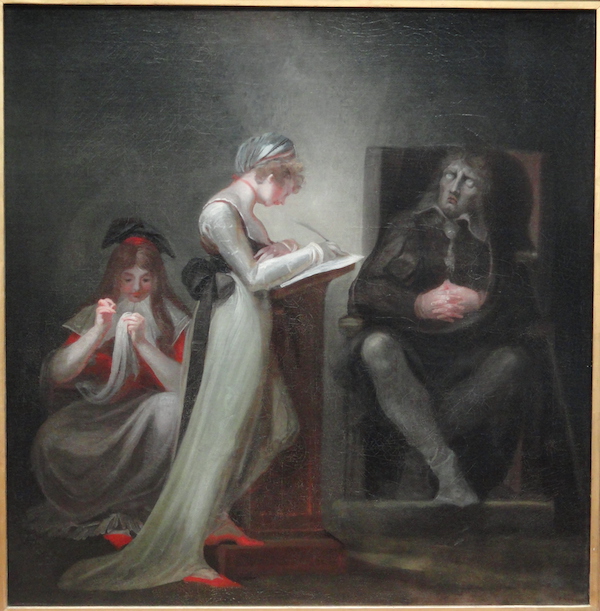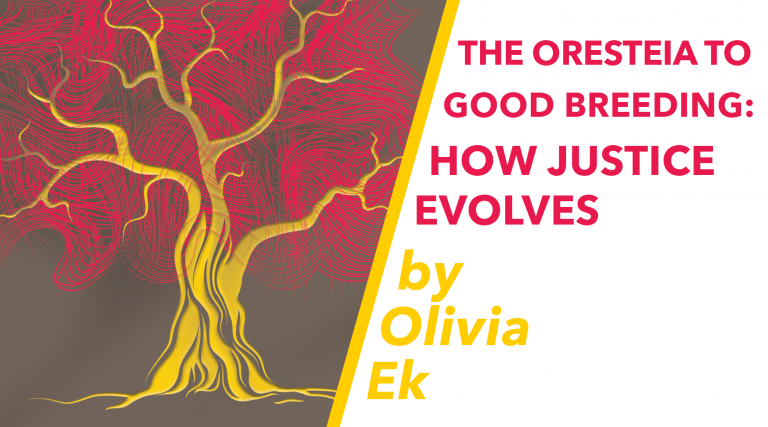Dramaturg’s Blog | Our Community on Love, Desire, and Loneliness during the Pandemic
By Elena Freck, Dramaturg (The Late Wedding)
This article includes quotations from Emerson community members and others, discussing their experiences in romance and solitude over the past year and a half. All have been anonymized, and some may be edited for clarity.
You entered the pandemic in one state of being, and now, you’re likely somewhere else entirely. Maybe the pandemic separated you from your loved ones, or maybe it trapped you together in a pressure cooker. Maybe you began the pandemic in a long-term relationship, and maybe that relationship is over now, for one reason or another. Maybe you pushed yourself through the horrors of online dating, of outdoor picnic dates and rapid tests and chaste elbow bumps in place of kisses. Maybe you discovered something new about your gender or sexuality in isolation, suddenly liberated from the pressures of public performance. Maybe you abandoned the concept of dating altogether, maybe you turned to friends and family for support, or maybe you just marinated in solitude.
Christopher Chen’s play The Late Wedding chronicles many marriages undergoing a myriad of difficult circumstances. Honeymoons spent apart, children with unknown fathers, war and revolution, the unfathomable distance of space travel…all of these situations push couples to the brink. After a year and a half of a global pandemic, most of us know that brink well. In my work as the production dramaturg for The Late Wedding, I was often struck by how the play expresses so much about marriage simply by arranging stories next to each other and leaving them be. I found myself curious about what would happen if I tried to apply this storytelling strategy to our current moment. I opened up my Instagram direct messages and asked Emerson community members to share their experiences of love and loneliness during the pandemic.
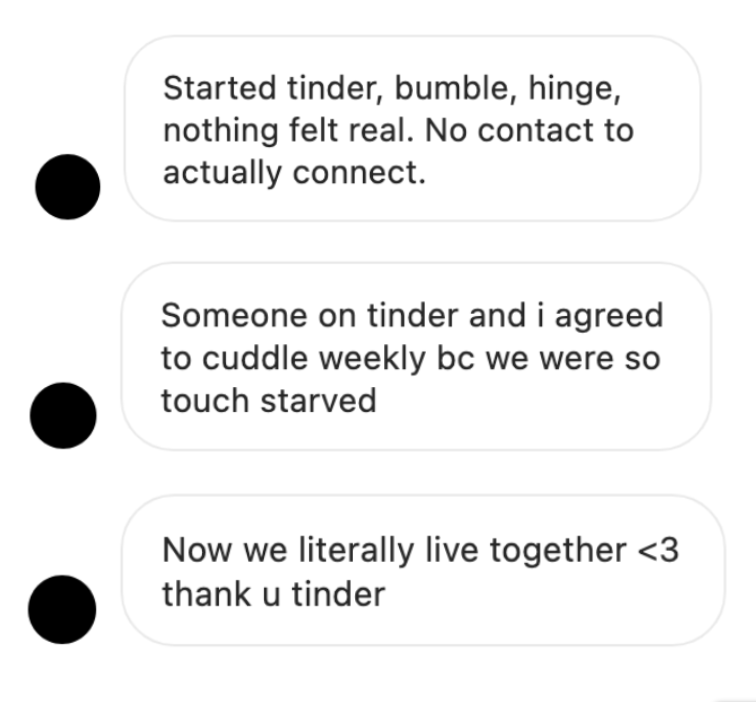
For people who found themselves single and searching for love in the past eighteen months, online dating became a new routine. According to the BBC, Tinder witnessed over 3 billion swipes on March 29, 2020, an all-time single-day record for the platform. Emerson students took to the apps as well, with varying degrees of satisfaction. Some were frustrated by the impersonality of digital dating. One student used an app to set up a transactional physical relationship, compensating for the suddenly limited opportunities for physical affection. Another found love on Tinder and now lives with a partner they swiped right on.
For some, the pandemic brought unexpected new opportunities for love. Two recent Emerson alumni described rekindling connections with people from their pasts. Another respondent started dating someone they met at the job they took to survive the pandemic. Would these connections have occurred without the constraints of quarantine?
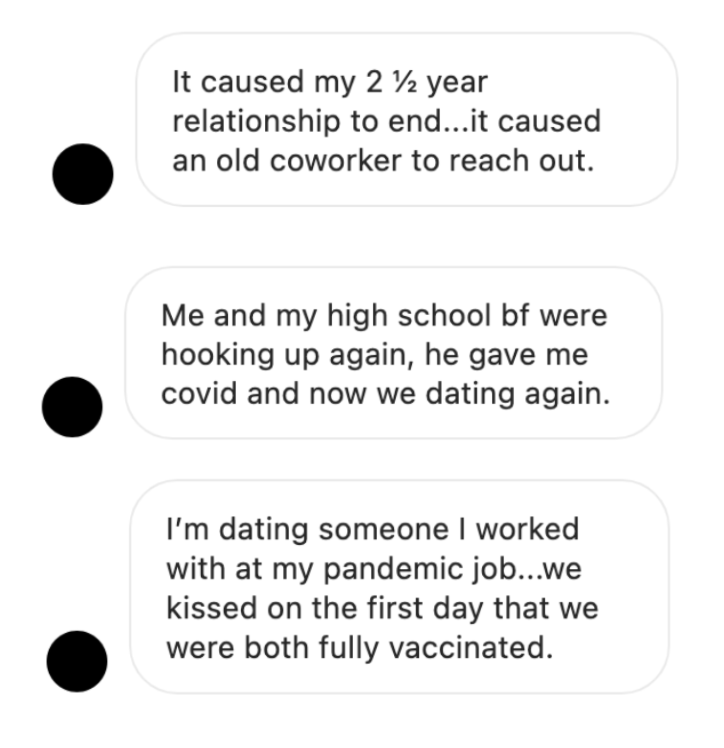
Maybe, but the pandemic undoubtedly shaped the trajectories of these relationships. Call it destiny, call it a silver lining, or call it a complete coincidence; these surprising connections stand in hopeful contrast to the many tragedies of the pandemic.
For others, tragedy only begot more tragedy as once-steady relationships came to a close. Unemployment, exposure risks, being trapped in a small space with little time spent apart — all very real problems of pandemic living, and all problems that can put stress on a relationship. Some of the most raw and poignant responses came from individuals who went through breakups during the past year. “When the pandemic started it felt like time stopped. That’s when I realized I could never spend forever with them.” / “[the] pandemic stripped us of something that we won’t ever find again.”

Even for couples who stayed together, the realities of the pandemic impacted relationships, for better or for worse. Whether it be an increased sense of codependency following months of isolating together, arguments about potential exposures and testing regimens, or just plain missing one another, roadblocks were inevitably created by quarantine restrictions. Inversely, however, another student credited a months-long separation for taking their relationship to the next level: “it makes the payoff when we do get to see each other so much greater…‘absence makes the heart grow fonder.’”
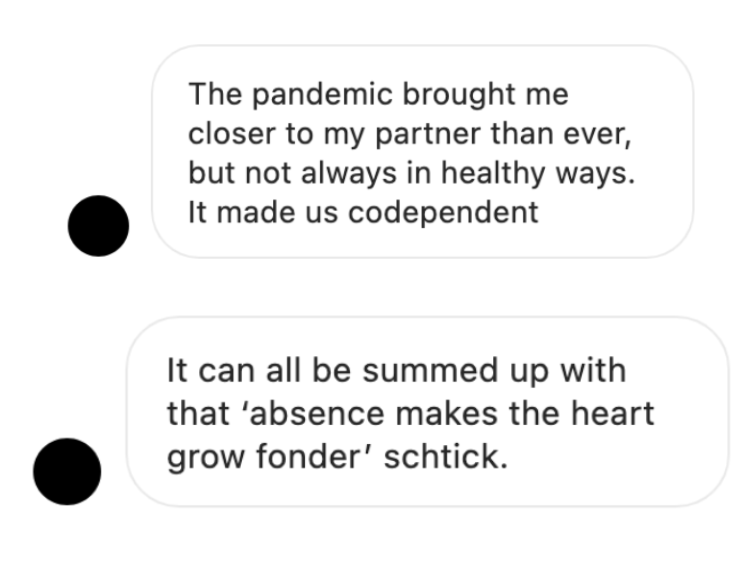
So what do we make of these stories? Our heartbreak, our joy, our strange and sudden adaptation to this at once infuriating and comical situation? For one, we should try not to focus on the ‘ifs,’ the ‘buts,’ or the ‘what might have beens.’ Tempting though it may be to imagine what could have occurred if the coronavirus had never made landfall, it is ultimately a futile exercise. The Late Wedding draws inspiration from the great 20th century author Italo Calvino. In his novel If on a Winter’s Night a Traveler, Calvino writes “I would like to erase the consequences of certain events and restore an initial condition. But every moment of my life brings with it an accumulation of new facts, and each of these new facts bring with it consequences; so the more I seek to return to the zero moment from which I set out, the further I move away from it.” Time marches on regardless, and the “zero moment” of March 2020 will never be found again; agonizing over stolen opportunities only invites regret.
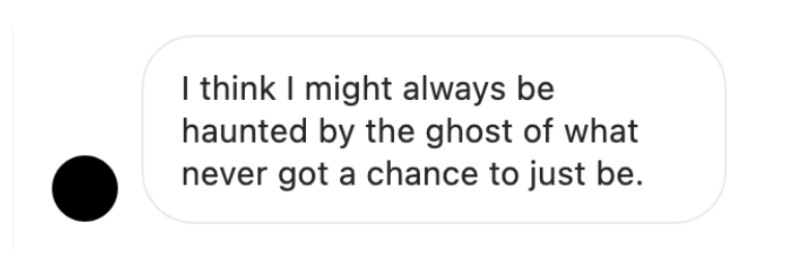
What we can do is process our collective grief and celebrate our successes together. We can be honest and vulnerable about our experiences, both positive and negative. We can read the stories of others, and reflect on how they resemble or differ from our own. And we can come to the theatre, as long as it is safe to do so, to gather and witness our shared humanity.
The Late Wedding opens on Thursday, September 23 and runs through Sunday, September 26 in the Jackie Liebergott Black Box Theater. More information and tickets are available at emersonstage.org/the-late-wedding.

